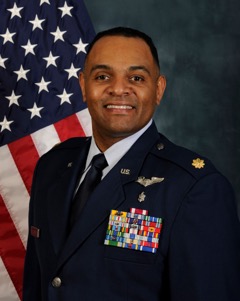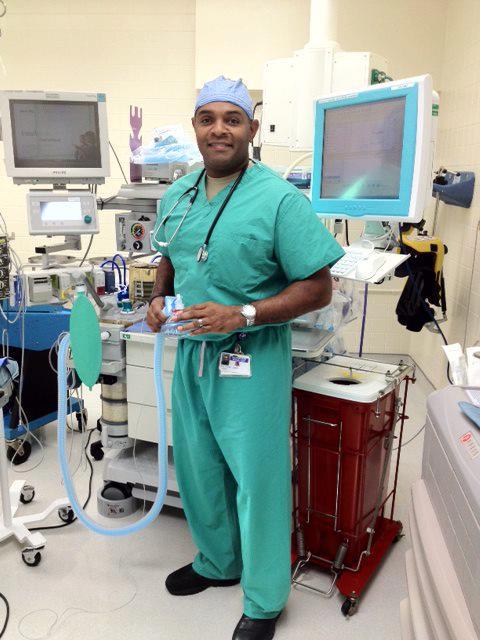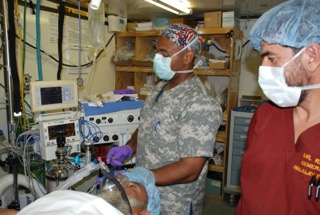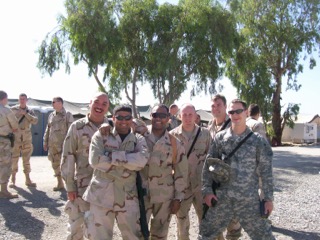Retired Air Force Major Saved Soldiers, Educated Doctors as Military CRNA
Today he mentors underserved diverse populations to become nurse anesthetists
 As his name implies, Retired United States Air Force Major James B. Goode has provided soldiers and civilians with not only good, but safe and high-quality anesthesia care for many years as a certified registered nurse anesthetist (CRNA). As his name implies, Retired United States Air Force Major James B. Goode has provided soldiers and civilians with not only good, but safe and high-quality anesthesia care for many years as a certified registered nurse anesthetist (CRNA).
He served 28 years in the Air Force and as a member of the North Carolina Air National Guard. The Danville, Virginia, native recently moved to Waxhaw, N.C., where he commutes to Charlotte and works 13-hour shifts at a city hospital.
Goode volunteers with the Diversity in Nurse Anesthesia Mentorship program that informs, empowers and mentors underserved diverse populations to prepare them for a successful career in nurse anesthesia and increase the number of minority CRNAs.
While in the Air Force, Goode was deployed to Saudi Arabia as an ICU nurse after 9/11 and to Afghanistan and South Korea as a CRNA in 2007 and 2009 respectively. The anesthesia providers for his Middle East and East Asia deployments were CRNAs-only, which meant Goode and another CRNA were solely responsible for a few thousand people at each location.
There were more than 350 traumas in the seven months Goode served in Afghanistan helping his comrades as a stand-alone anesthesia provider. In addition, he was able to teach the Afghan doctors how to care for their patients using regional anesthetic.
“When the Afghan doctors had to work on burn victims and wound debridement, I taught them how to use a nerve simulator to block patients’ limbs so they wouldn’t have to put them to sleep,” said Goode. “I was able to teach them another way to administer pain relief that was safe and cost efficient.”

He said allowing civilian CRNAs and advanced practice registered nurses to practice to their full capabilities can save patients and hospitals time and money, while providing the same high level of care.
In the military, Goode was an independent anesthesia provider, but as a civilian his scope of practice has varied depending on where he worked.

In an effort to maintain the skills he acquired as a military CRNA, soon he will work part-time at a smaller facility in South
Carolina, in addition to his job in Charlotte. The two facilities are 60 miles apart, but Goode will be able to perform additional anesthesia services supported by his education and training.
“Our [CRNA] training is top notch, but when it comes to our scope of practice, I like to use the analogy of telling a mechanic, ‘You may know how to fix my car completely, but you’re only allowed to fix it a little bit’. No one wants to limit a mechanic from working on their car like that,” said Goode.
"We just want to have the full authority to take care of patients to the best of our abilities.”
|